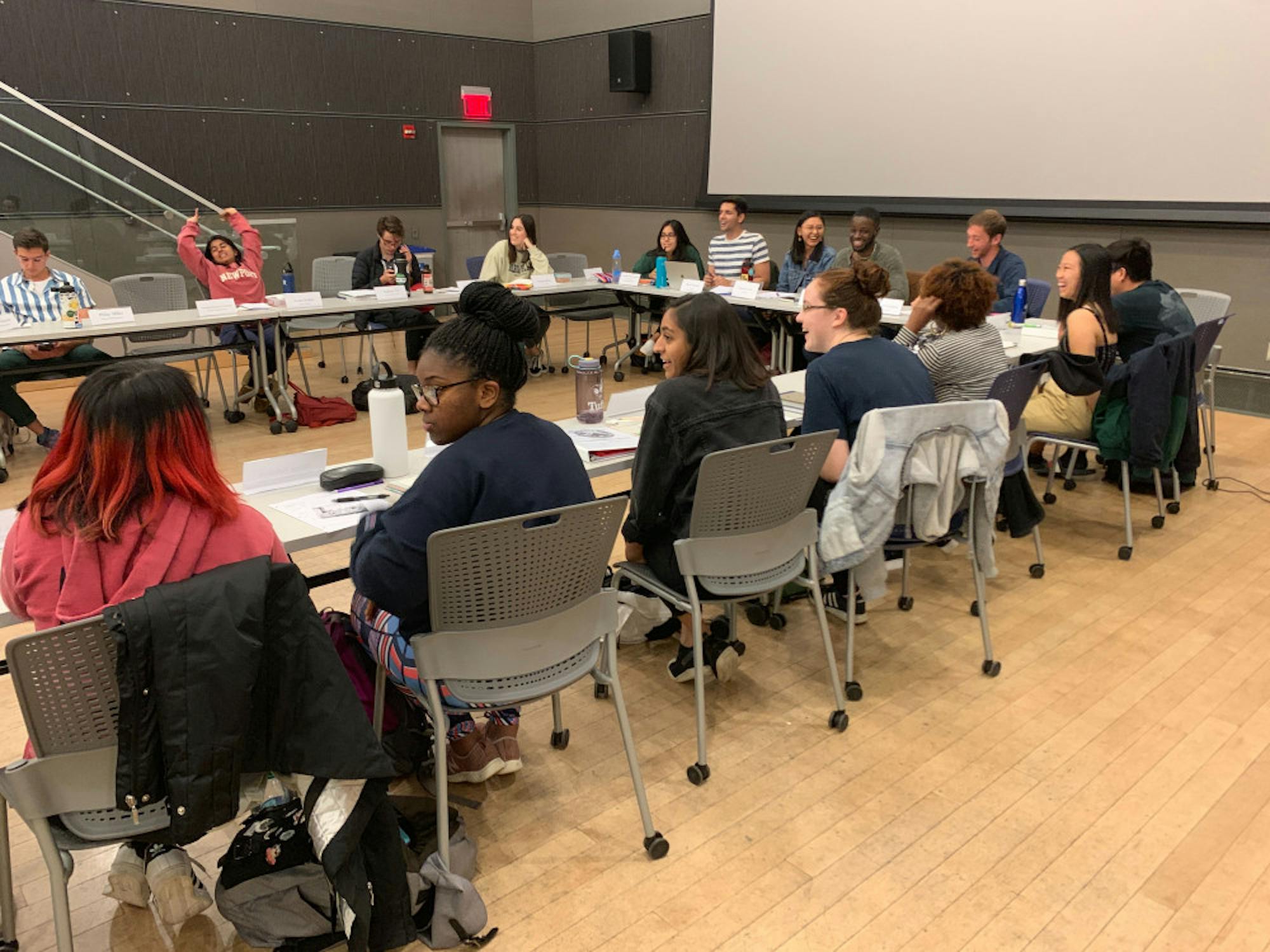The Tufts Community Union (TCU) Senate reviewed and approved its entire fiscal year 2021 (FY21) budget last week , allocating $2,070,872 to over 300 student organizations.
The overall budget is divided into nine councils and an engineering council, each focusing on a different category of student organizations. There is an additional division for umbrella organizations, which includes organizations such as club sports, whose funding supports several sub-groups.
Council One, which includes cultural groups on campus, was allocated $140,194. The budget for Council One passed with 33 Senators in favor, none opposed and none abstaining.
Council Two, which includes programming groups on campus, was allocated $28,877. The budget for Council Two passed with 33 Senators in favor, none opposed and none abstaining.
Council Three, which includes media groups on campus, was allocated $108,908. The budget for Council Three passed with 32 Senators in favor, none opposed and one abstaining.
Council Four, which includes religious groups on campus, was allocated $96,879. The budget for Council Four passed with 33 Senators in favor, none opposed and none abstaining.
Council Five, which includes performance groups on campus, was allocated $158,338. The budget for Council Five passed with 31 Senators in favor, one opposed and one abstaining.
Council Six, which includes miscellaneous groups on campus, was allocated $129,691. The budget for Council Six passed with 33 Senators in favor, none opposed and none abstaining.
Council Seven, which includes pre-professional and academic groups, was allocated $35,289. The budget for Council Seven passed with 32 Senators in favor, one opposed and none abstaining.
Council Eight, which includes political and advocacy groups, was allocated $34,044. The budget for Council Eight passed with 32 Senators in favor, one opposed and none abstaining.
Council Nine, which includes student government, was allocated $63,793. The budget for Council Nine passed with 33 Senators in favor, none opposed and none abstaining.
Various umbrella organizations were allocated $1,200,010. The budget for umbrella organizations passed with 33 Senators in favor, none opposed and none abstaining.
During the budgeting process, which spans most of the length of the spring semester, each organization drafts a budget proposal in coordination with the TCU Senate's Allocations Board (ALBO).
“Each organization drafts their own budget proposal and the drafts are finalized in consultation with the Allocations Board, taking organizational needs, university regulations, and available resources into consideration,” TCU Treasurer Sharif Hamidi wrote in an electronic message.
An individual ALBO member reviewed and compiled the budget for each council before it reached the full TCU Senate.
Despite modifications made to the process as a result of the coronavirus pandemic, whichforced campus to close and classes to be shifted online, Hamidi affirmed that the TCU Senate still budgeted with the goal of building a positive experience for all students.
Historically, the TCU Senate passes its budget duringone of its final meetings of the semester, which is set aside for doing so. In order to adapt to the obstacles presented by the move to distance learning, TCU Senate passed the budget virtually over the course of an entire week.
“Budget Day [was] a weeklong process because of current conditions,” Hamidi said. “Recognizing that everyone’s personal circumstances are unique, there [were] no mandatory live meetings or discussions.”
Hamidi affirmed that the spirit of the budgeting process was preserved as much as possible, but the final review also transferred to a digital platform. Voting was conducted via a secure Tufts Qualtrics form.
“[Senators were] able to access all the budgets and supporting documents [they needed] to make informed voting decisions on the budget allocations finalized by the Allocations Board,” Hamidi said.






